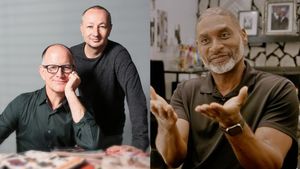New research from Lauren Howe and Carol Dweck out of Stanford University looks at the relationship between how we view our personality, how well we handle rejection, and how quickly/effectively we’re able to move on after a serious relationship. People who believe personality is fixed, meaning they think it's innate and unchangable, have a harder time with rejection and moving on. This isn’t that surprising, as they believe that there is a core part of themselves that is undesirable, and alas, it’s something they can’t change. So if one person leaves them for it, others will too—or so their logic goes. These people begin to think they are fundamentally flawed and because of this, rejection, even if it’s from someone they hardly know, is excruciatingly painful. Whereas people who think personality can grow, see rejection as a part of life and understand that while this person may no longer wish to be intimate, they can change (if they want to).
While the researchers didn’t look explicitly at self-esteem, I’d be willing to bet that those who have a "growth mindset" of personality also have higher self-esteem; as rejection, for them, is just an opportunity for growth. Individuals with a growth mindset are not going to be as troubled by a setback as the "fixed mindset" group, and will be more likely to persist in the face of rejection.
So the take away from this is simple: Try to view your personality as having the potential for evolution, and realize that other people’s opinions of you: 1). May be false and 2). if true, doesn’t say something about how you are, just something about how you acted.
This isn’t an easy feat. Changing your outlook on how you view yourself and the world will require some serious introspection. But it’s by no means impossible.
This research is definitely beneficial to individuals of all sexualities and genders, but I think these findings play an even more significant role in the lives of gay/bisexual men.
Let’s be honest for a second. Queer men can be ruthless to one another. We can be catty, judgmental, and reject men unfairly. Rejections are often based on what some men like to call preferences, but what should actually be called racism. Don’t get me wrong, there are preferences, but racism runs rampant in the gay community. (Recently, exposure of gay racism has been in the media with the hashtag #tweetlikeawhitegay.)
Homonormative culture has come to glorify the gay Adonis: Muscular, masculine, and white, with buns of steel, washboard abs, big biceps, and an even bigger dick. So those of us who don’t fit that mold (which is most of us), often feel rejected by the gay community. Additionally, much of heternormative society has rejected us, otherizing us, and in some cases, demonizing us. This is all a long way of saying gay/bi men get rejected more often and more frequently than others. Therefore, having the mindset that we can change aspects of who we are is necessary.
Let me clarify, there are some things you can’t change. Your race. Your sexuality. Your height. And these are things you wouldn’t want to change. These are fixed things that are ACTUALLY you. Unfortunately, people might reject you for these fixed characteristics. And that really sucks. There’s nothing else to say. People can be awful. But don’t confuse personality traits with these fixed traits. Personality traits, how you behave, how you love, how you speak to people, empathize, lose your temper, how you respond to rejection—all of these things are changeable. You are a work in progress. You, and this includes your personality, are growing daily.
I can’t think of a more perfect time to use the serenity prayer, so I’ll leave you with it.
Grant me the serenity to accept the things I cannot change, the courage to change the things I can, and the wisdom to know the difference.



























































































































